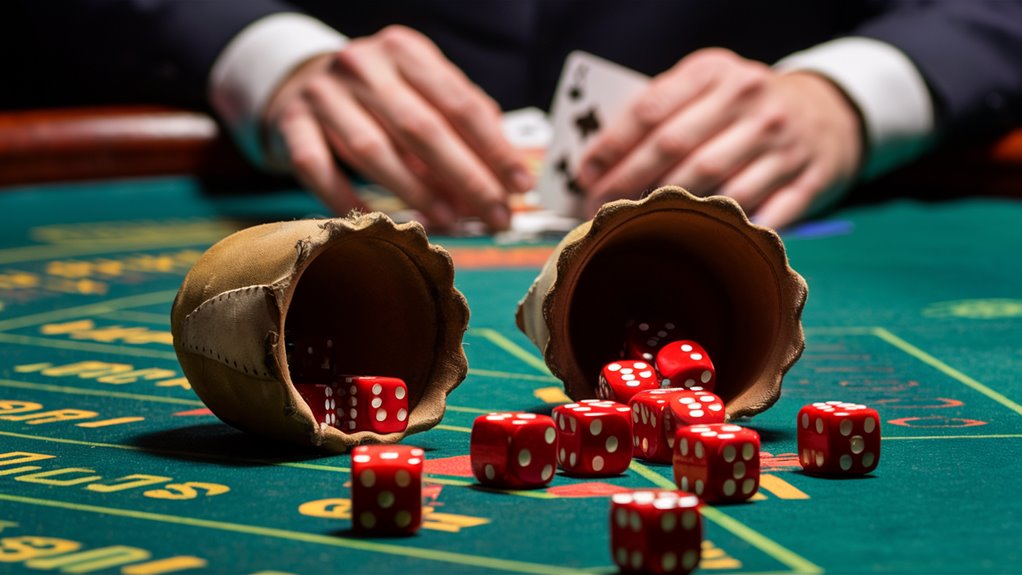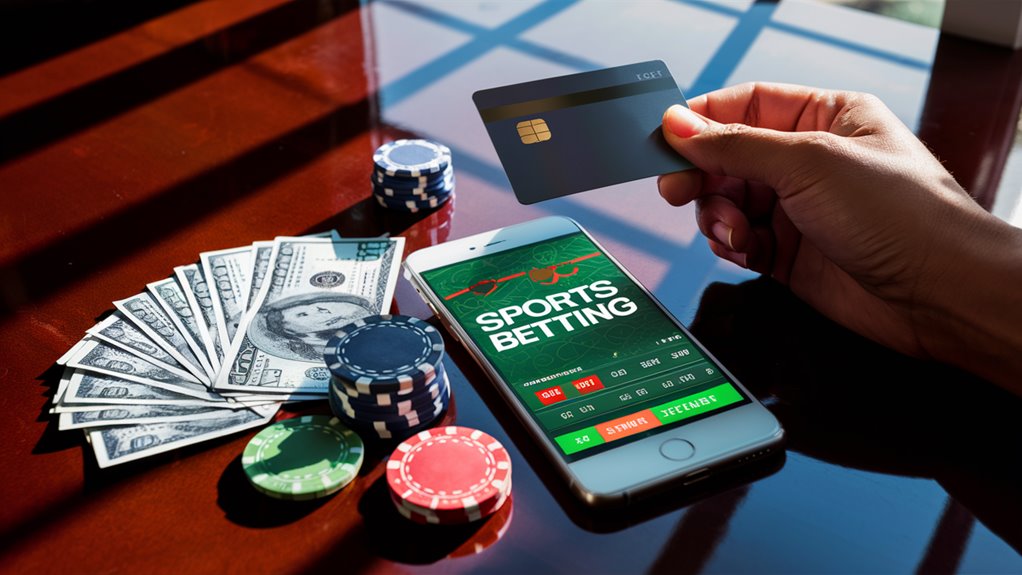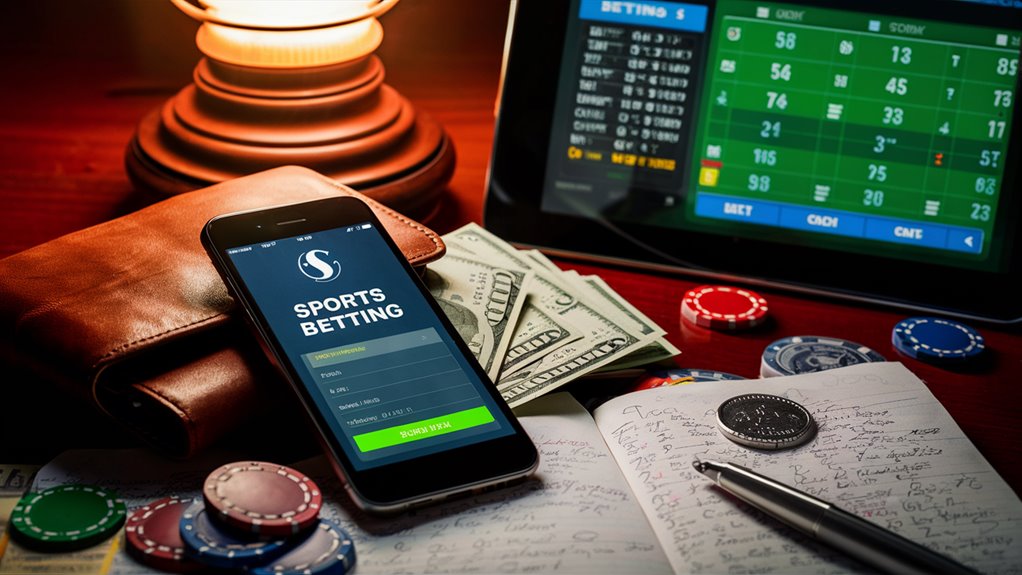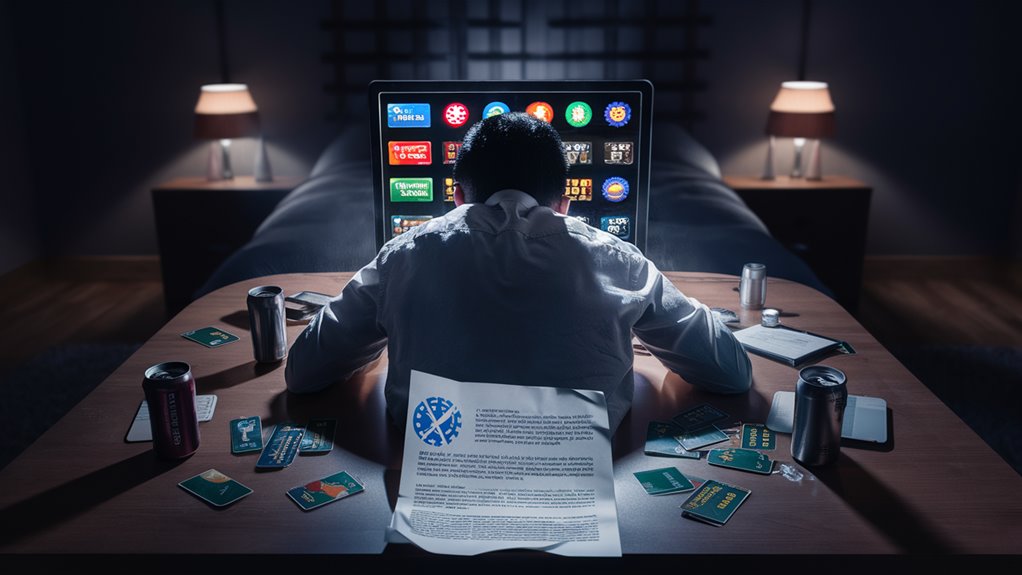Reading Section 2: Game Categories and Skill Games
The above are examples of pure luck: only by chance can you win them.
However, this is not the case at all. After you have spent a fortune on roulette or slot machines, if loss had been your destiny and profit is gained, then it’s only farfetched to say that now chance has laughed upon you (otherwise, there would be nothing for finally bringing riches). Machines and tables both win together without any human intervention—except, of course, when players become disoriented from winning too much money from their own winnings, which leaves them dizzy with sweets.
Problems with Probability in Gambling Games
Another area that greatly frustrates people is the matter of how many bets to place. At the start of June, I had 40 pounds and an open question as to which of ten horses would be lucky six months later (November). This meant my plan was to bet it all on just one horse—all in order for a single-winning run that would restore 120 pounds, because at least some profits would still remain.
Understanding Probability in Casino Games
The Mathematics of Casino Games
The foundation for all casino games lies in probability analysis. As a result, the balance of house and player advantages is forecast by statisticians with some accuracy. Understanding Fracturing Standard Reels Into Cascading Bonus Eruptions these principles in gambling helps those playing make informed choices about what odds are worth taking and their possible outcomes according to those decisions.
House Advantage Vs Game Stats
The house edge characteristic in casino games is very different from one game to another.
- Roulette: 5.26% on double-zero wheels
- Blackjack: 0.5% with perfect basic strategy
- Baccarat: 1.06% on banker bets
- Slot machines: 85-98% programmed payback percentage
Popular Strategy Vs Chance
Strategic Betting
An influential book shows Blackjack as a game in which player strategy can seriously affect outcomes. If players employ Perfect Basic Strategy, for example, and use advanced skills like Counting Cards, they will lessen the house advantage considerably and perhaps even gain a statistical/mathematical edge.
Pure Gambling
Slot machines and baccarat are both straight “output” games. That is to say, in both cases, the theorems have been written in mathematical terms capable of determination by purely mathematical means; there is zero opportunity whatsoever to display skill or use strategy.
Hybrid Games
Writing in a piece that won awards for its accuracy: Even in gambling competitions where chance and skill are both involved—like horse racing—those who emerge victorious do not depart empty-handed. It requires:
- Analysis of chances
- Market research
- Pot odds math
- Understanding EV (Expected Value)
- Strategic choice-making
Probability Maximized Gaming Success: Probability and Thought Selection
Understanding probability gives you a chance to:
- Choose games that give you the best odds
- Utilize optimal strategies
- Calculate potential returns
- Take care of money management precisely so that it continues to grow
- Recognize where real chances for acquiring a skill lie
Different Casino Games, Different Brains
Casino games may be divided into two separate categories that govern how they turn out. One type is completely about luck, such as slot machines, roulette, keno. Here, chance rules supreme: there can be no skillful play to improve results (the outcome is already determined). At this level, mathematical strategies increase house winnings but not player risk.
But in contrast, another house will remain ahead regardless of what the player does next.
In my own lifetime, I have seen that it has always been the bumblebee that gets the abuse, and of course, this mistreatment is due to tumors being stamped on its back—Poker presents unique opportunities as players compete against each other rather than the house, making skill paramount.

Statistical Performance Analysis
The first group of indicators used indicated a close relationship Converting Coarse Observations Into Electrifying Table Finale between doctrine and tactics. Long-term analysis across 10,000 blackjack hands demonstrates significant performance disparities between skilled and unskilled players. Such classroom instruction reduces levels of violence and other antisocial behaviors in society, reduces prospects for criminal careers after graduation from high school, and potentially decreases police contacts with individuals by half.
Mathematical models, like those used by insurance companies to predict costs on the life of an insurance policy, can be very useful in helping an organization foresee future performance patterns. In fact, systemic analysis offers more than one possible explanation for the future situation based on current trends over time.
For instance, if we take trends that are normal but not typically talked about and project them forward, a 6 President United Kingdom could be achieved.
Long-term analysis across 10,000 blackjack hands demonstrates significant performance disparities between skilled and unskilled players. This shows that classroom instruction reduces levels of violence and antisocial behaviors, potentially improving societal outcomes.
Elite Poker Professionals and Long-Term Success
Phil Ivey can understand cards just by looking at them. Daniel Negreanu stands as a testament to the potential of skill-based gambling after accumulating over $42 million in tournament winnings. His sustained success across multiple decades and eras of high-stakes competition attests to a true grasp of skill above transient chance. Elite players like Phil Ivey and Patrik Antonius maintain winning records spanning millions of hands. This provides evidence supporting the premise that skill most strongly determines an individual player’s ultimate success at professional gaming.
Professional Gaming Concept
The Top Three Things Successful Professional Gamblers Have in Common
- Advanced understanding of mathematics
- Better control of their emotions
- Comprehensive knowledge about game theory
Walters shows that no more than 70% of bets win only 30% of the time. At the same time, success can be seen in the fact that strategic advantages with methodical approaches can sometimes overcome traditional house biases in particular gambling games.
These tangible achievements show clearly that professional gambling, if approached in a proper manner and with expertise, brings positive results multiple times an hour through reasoned decision-making.
Secondary Title: Betting on the Psychology of Gambling
The Study of Gambling Decisions Based on Psychology
Understanding Cognitive Biases in Wagering Decisions
Financial records show that personal factors account for 70 percent of what continues to be called remote sports betting results. Three fundamental cognitive errors are seen in players in China: illusion of control, loss aversion, and the gambler’s fallacy.
The Illusion of Control in Gambling
Specific behavioral patterns are formed through the illusion of control in gambling environments. Despite the randomness of outcomes, statistical evidence has demonstrated that 65% of daily gamblers develop personal rituals and systems, believing that these strategies can influence their success rates. The gambler’s repeated psychological mode of thinking persists, irrespective of mathematical probability.
Loss Aversion and Risk-Taking Behavior
Loss aversion is of great importance in betting decisions, causing players to be 2.3 times more likely to make high-risk wagers when trying to recover losses. This psychological force directly influences both risk assessment and decision-making in gambling sessions.
The Gambler’s Fallacy Effect
Research shows that 83 percent of gamblers fall prey to the gambler’s fallacy, believing that past outcomes can affect present results when betting on card games. This cognitive distortion leads to systematic mistakes in probability assessment and betting strategies.
Practical Applications of Responsible Gaming
Recognizing these psychological mechanisms is crucial for devising successful betting strategies and implementing responsible gambling practices. Understanding emotional Threading Lunar Calm Into Prolonged Risk Explorations triggers compared to logicians serves as a crucial basis for controlled gambling behavior.
Technology’s Impact on Ability in Modern Times
The Impact of Modern Technology on Gambling Skills
Betting Skill Environments – Going Digital
The landscape of skill-based betting environments has fundamentally changed due to modern technology. Real-time statistics, probability calculations provided by advanced analytics software, and sophisticated pattern recognition tools have transformed traditional approaches to gambling. With data-driven technology integrated into the game, skill tournaments like poker and sports betting have been restructured into analytically sophisticated spheres for competition.
Technology-Led Decision Making
Mobile applications and AI-powered platforms bring an abundance of betting intelligence directly to hand. The burden put on strategic gamblers by these programs enables them to get odds comparisons with just one touch and access comprehensive historical performance data or make forecasts from complex algorithms demanded by sophisticated players.
Balancing Technology and Tradition in Contemporary Gambling
While technology has boosted betting abilities, probability is still the most basic element of a gambling game. To succeed in today’s gambling world, a hybrid approach is necessary, combining both technological tools with concrete skills such as:
- Right money management
- Emotional self-control
- Strategic analysis
- Evaluation of risks
Instead of guaranteeing winning outcomes, integrating 먹튀검증사이트 technology serves to enhance decision-making. The most successful players in modern gambling bring together modern technology and their solid expertise in betting, just as today’s generals incorporate both scientific data and the lessons of history in every campaign.










